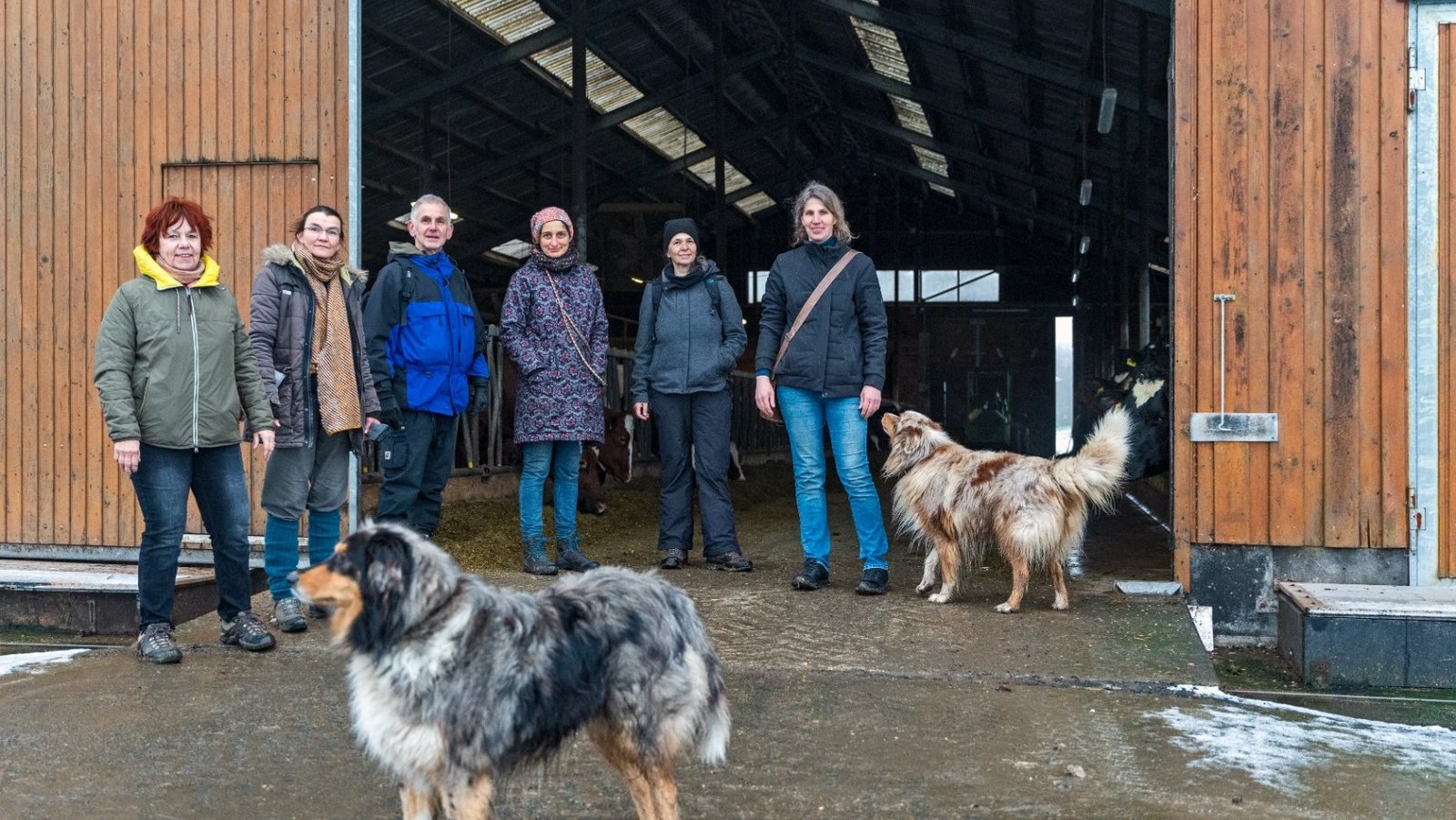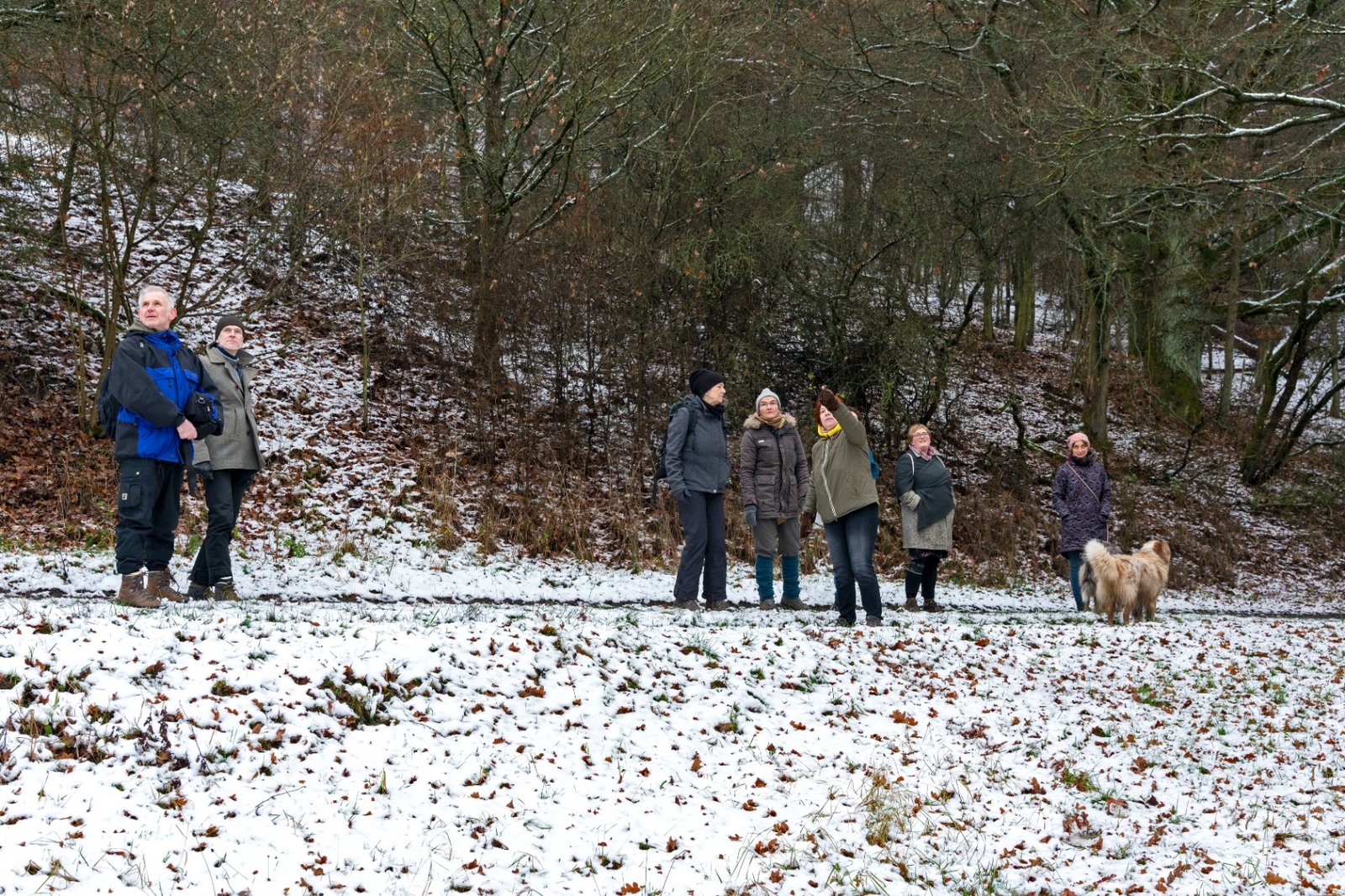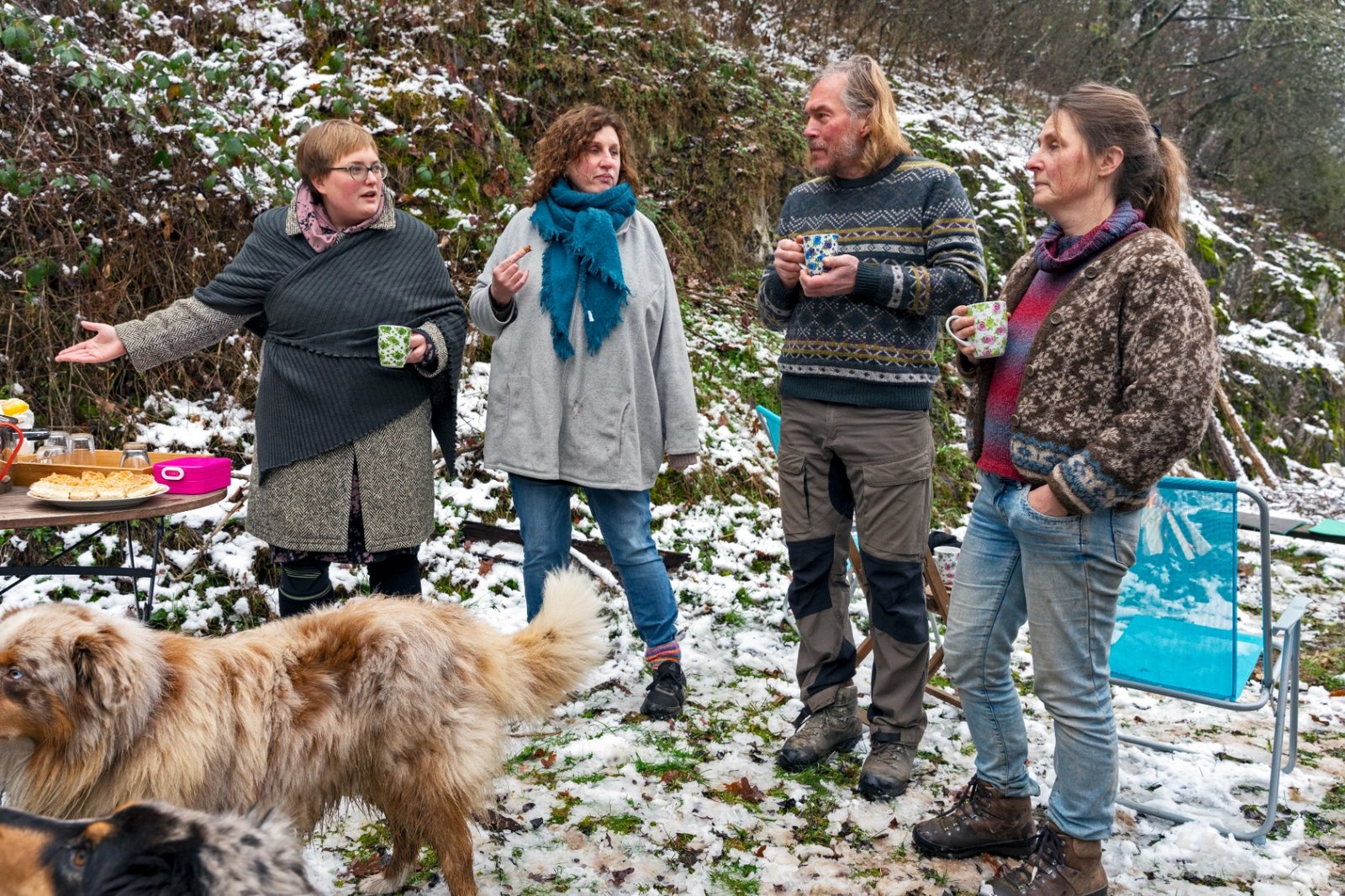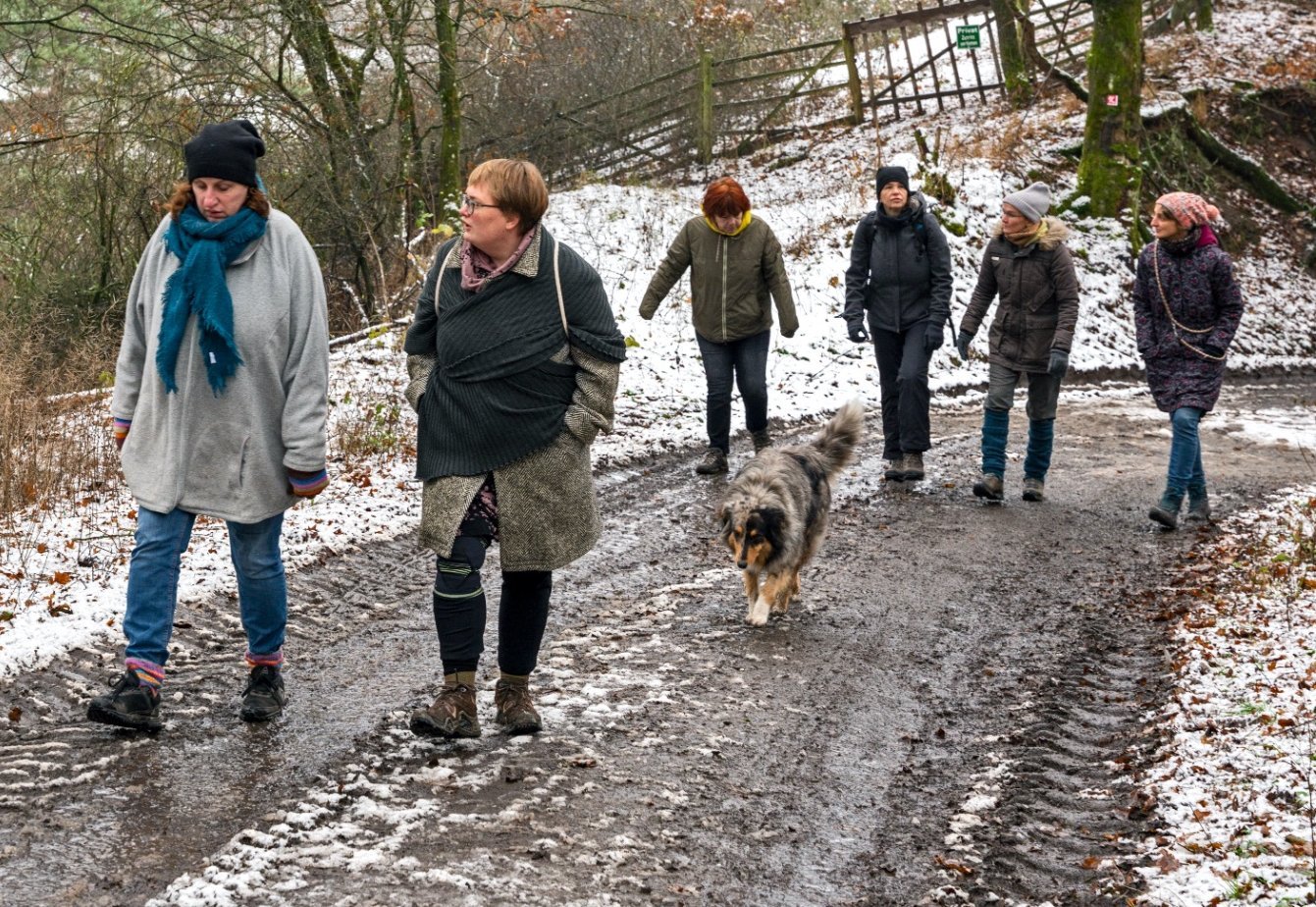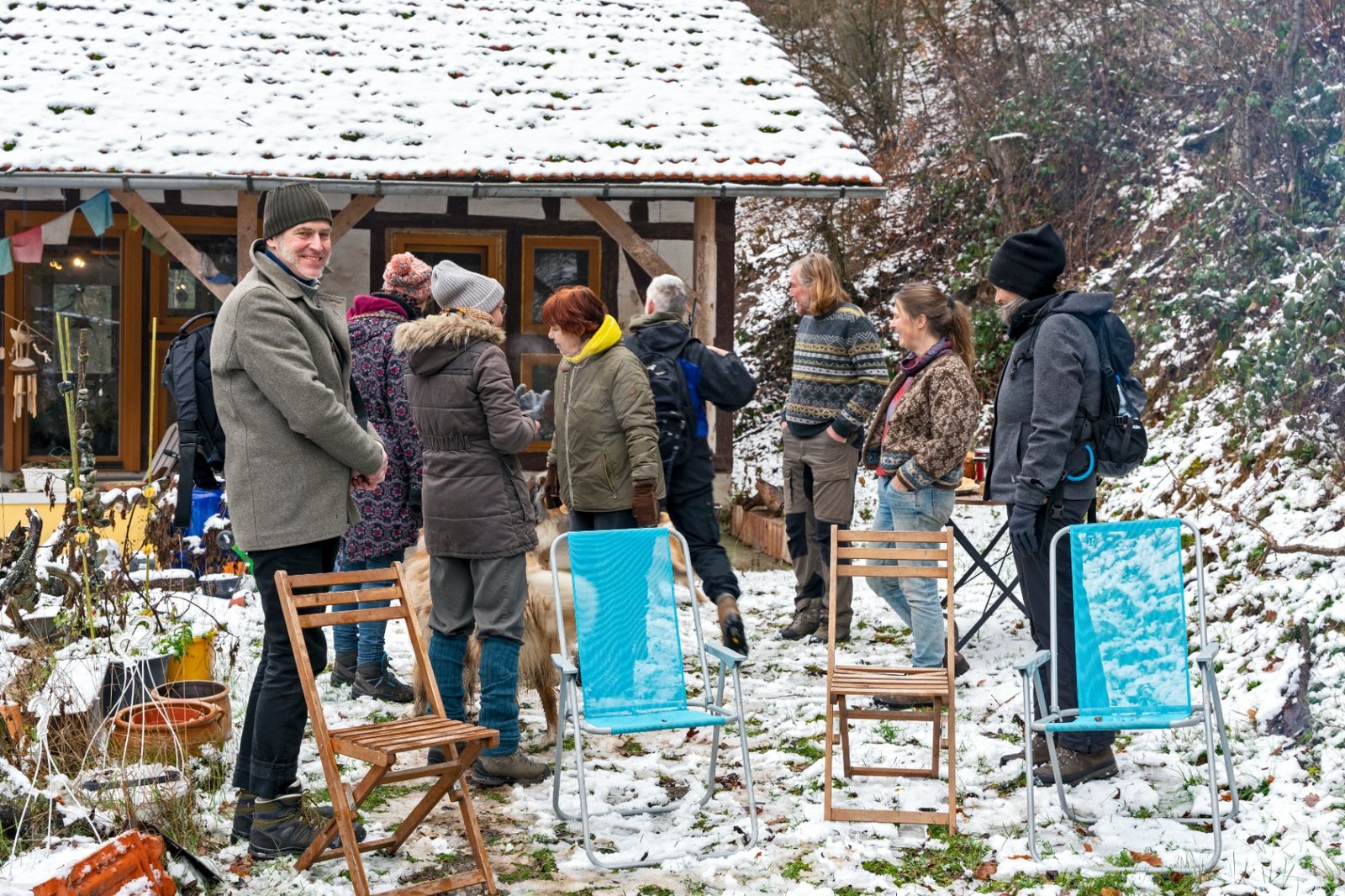If you come to Waldeck-Frankenberg in northern Hesse, the beauty of the landscape can easily deceive you about a process that has been creeping here for a long time and has largely taken its course underground: The progressive threat to the resource of water.
The recharge of groundwater has been decreasing in the region for years, while demand is increasing at the same time. Forests are suffering from more frequent, prolonged periods of drought. Urban centres are expanding their water catchment areas and using groundwater reservoirs from increasingly distant regions, which also include Waldeck-Frankenberg. Private beverage producers are using more and more deep groundwater. Sensitive ecosystems that ensure a region's water supply are being destroyed for questionable construction projects. In addition, large-scale use of pesticides, synthetic fertilisers and increasing manure imports from regions with a lot of industrial animal husbandry threaten water quality.
In 2018, the Wasserinitiative Waldeck-Frankenberg (Waldeck-Frankenberg Water Initiative, WIWF) was founded to draw attention to these problems. Its members know the nature of the region well. They observe landscape changes due to drought and soil pollution with concern and pain.
The initiative therefore wants to engage in a public dialogue about this change that is happening before their eyes and that affects everyone. The group wants to create greater visibility for the vulnerability of water as a resource and show that its occurrence cannot be taken for granted. It is to be reminded: Water is the reason why life can exist on our planet at all.
For this, they want an artistic work that connects people in their different backgrounds, interests and world views in awareness of the value of the common good of water. The work should express the responsibility of each individual to protect and conserve water, without being preachy or pathetic.
The water initiative has awarded the commission to the nachbars garten collective. The artists realise projects in public spaces. Most recently, they designed the forecourt for the Deutsches Zentrum für Integrative Biodiversitätsforschung (German Centre for Integrative Biodiversity Research, iDiv) in Leipzig. Principles of letting things grow and concepts of interaction are the basis of the square design.
Together with the New Patrons of Waldeck-Frankenberg, nachbars garten is developing the project Zeichen Setzen (Setting Signs). It is intended to encourage current and future generations in the region and beyond to pull together, openly and with an open mind, and to set an example for something that is equally urgent for everyone: the conservation of the common good of water.
The impetus for this artistic intervention in the Waldeck-Frankenberg area came from Prof. Dr Claudia Neu. She holds the Chair of Sociology of Rural Areas at the University of Göttingen. Prof. Neu led the Federal Ministry of Education and Research-funded project Das Soziale-Orte-Konzept. Neue Infrastrukturen für gesellschaftlichen Zusammenhalt (The social-places concept. New infrastructures for social cohesion), which investigated conditions of cohesion in the Waldeck-Frankenberg district from 2017 to 2020. The decisive question here was whether art can act as an initiator of social cohesion.
In addition to the start-up funding from the project, the district of Waldeck-Frankenberg and the Fondation de France also provided financial support. Furthermore, the office of the district administrator, Dr. Reinhard Kubat, represented by the head of village and regional development, Dr. Jürgen Römer, also provided support in organisational matters. The water initiative's commission is the first project of the New Patrons in the Federal State of Hesse.
